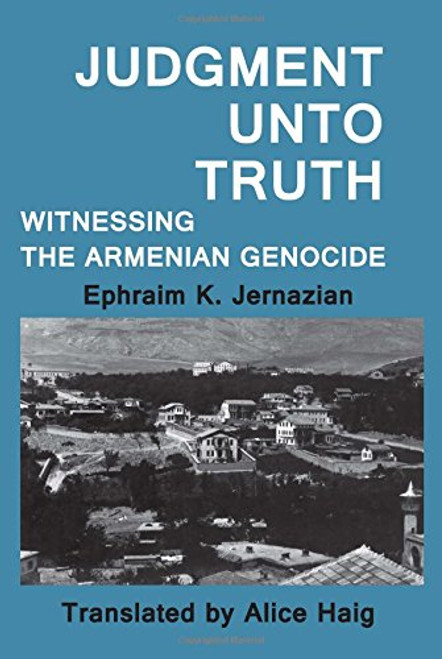This dramatic personal narrative is a unique contribution to understanding past and current events in the Near East. These memoirs of an American Protestant clergyman reveal little known aspects of major events in Asia Minor in the early twentieth century, give valuable insights to their background, and describe pivotal interrelationships with the western world. Those perceptions are woven into the story of the author's protracted genocidal experiences. Dispassionately rendered, Judgment Unto Truth is a call for truth and justice.
In the Hamidian massacres of 1895. Jernazian, a five-year orphan, loses two brothers. When all the Armenian Protestant clergy of Cilicia are killed in the Young Turks' Adana massacre of 1909, Jernazian answers the call to replenish the vacant pulpits. In 1915, when the final solution to the Armenian question is in progress, the author, an interpreter of the Turkish government, is in a unique position to observe the genocidal process. Afterwards, he and his new bride work to rehabilitate destitute survivors. He serves as liaison and advisor during the British and French occupations (1919-21). And during the Kemalist revolution (1921-23), Jernazian loses his remaining family and nearly his own life. Only through a miraculous escape after twenty-one months in a Turkish prison is he reunited with his wife, her mother, a daughter, and a son born three months after his arrest.
An unusual blend of religious idealism and pragmatic politics, his memoirs provide a singular emotional experience. As Vahakn Dadrian observes in his Introduction, This volume is a unique document of historical significanceaThe author presents comments and interpretations which portray him as an acute observer of intricate events. The book will appeal to historians of the period, educators, and professionals with an interest in the use and abuse of state power, and specialists interested in human behavior in extreme conditions.








